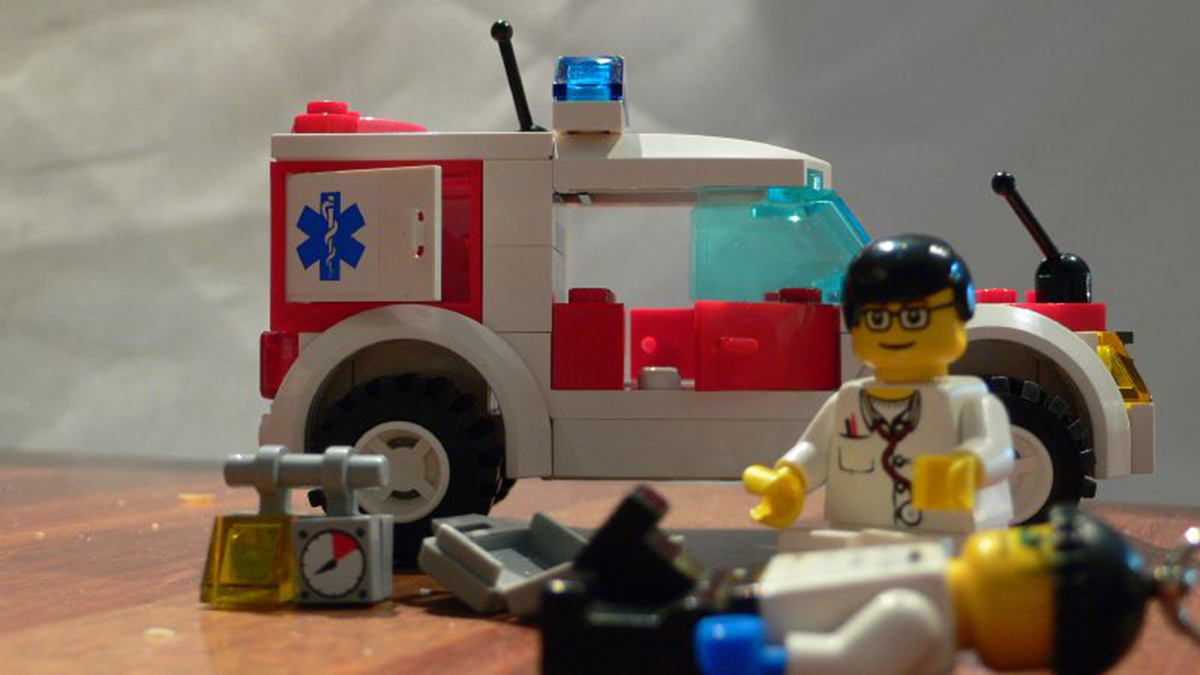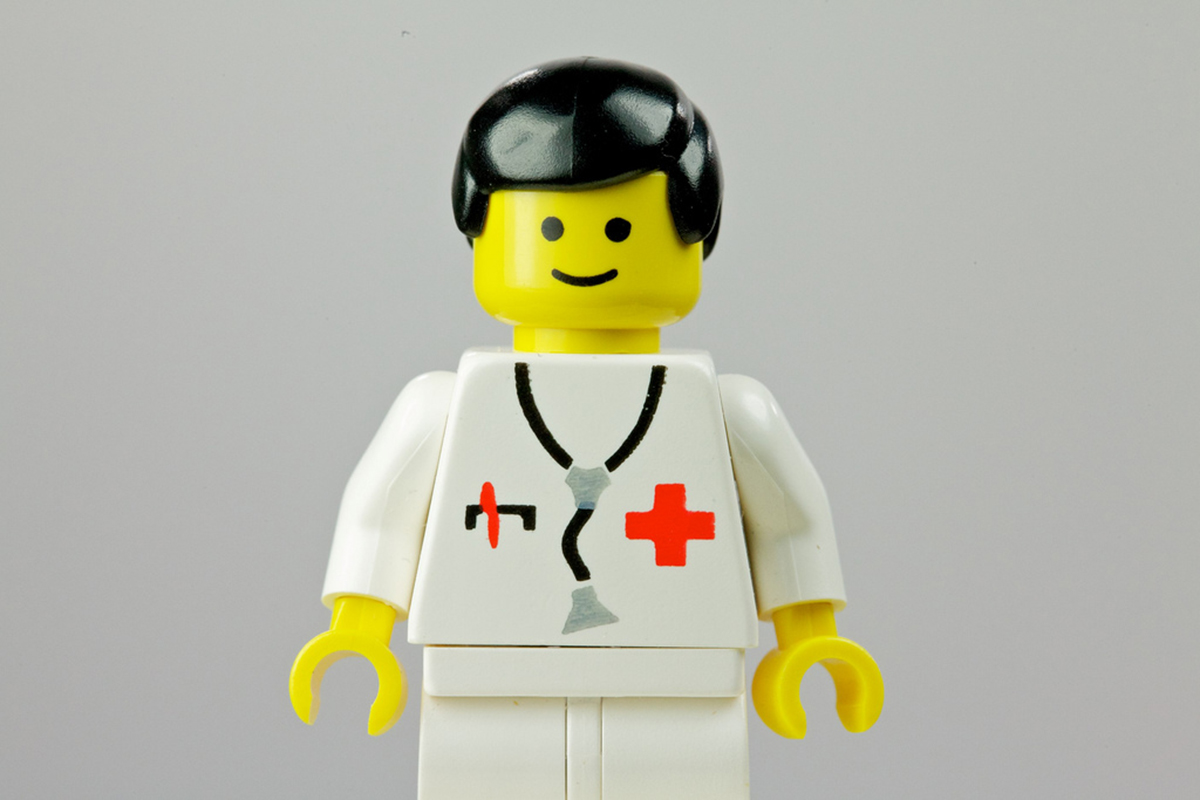About 25 years ago, when my niece was a toddler, she asked me how to do a cartwheel. I was in my late thirties, but I had once done cartwheels, so we went out in the front yard and I showed her my best. Somewhere in my second handstand I heard an unmistakable pop, pop, pop up and down my spine and I knew I needed to land in an upright position or I'd never be able to get back into the house. My niece said "Your back sounds funny" and then proceeded to do a half dozen cartwheels of her own, entirely without injury. I hobbled back into the house, waited until her parents came to pick her up, and then poured myself into my bed.

I had some vacation time, so I spent the next week trying to recuperate. I'm not someone who likes to take pain medication at all, but I did break down and take an Aspirin. I had health insurance, but I wasn't really inclined to go to the doctor. When I still had back pain three weeks later, however, I made an appointment to see my primary care provider. I remember saying something to the effect of friends say I really need to see you but I'm fine. Fortunately for me, my doctor, who was also a guy, didn't take me at my word, and an X-ray showed I really wasn't fine. I eventually recovered, but my somersaulting days are long over.
Why was I so hesitant to go to the doctor? Why are most American men reticent to see their doctors, especially if their doctors are other men? In America, a need to "grin and bear" it is a frequent part of masculine identity.
Not Seeing the Doctor Is a Matter of Self-Worth for Most American Men
Dr. Mary Himmelstein, when she was a doctoral student at Rutgers University in New Jersey, became intrigued with the question of why American men die, on average, five years earlier than American women. When she had a personal experience with a family member who waited too long to see a doctor, she decided to uncover the reasons men don't get preventive health care and timely treatment of obvious symptoms.
READ Low Bike Handles Dangerous For Women's Sex Lives
In one study, Dr. Himmelstein, gather two groups of people, one of them college students, and the other not. She gave the volunteers a psychological inventory called Contingencies of Self-Worth (CSW), which measures the important of courage and self-reliance, which in America are considered "manly" behavior. Then she asked the participants (both men and women) how often they saw their doctors and whether they delayed treatment. Both men and women who valued masculine behavior were slower to see a doctor about their health complaints.
Men Are More Likely to Describe Symptoms to Female Doctors
In a second study, Dr. Himmelstein asked the participants in the first two groups to visit either male or female medical students to describe their personal health. She found that the higher the masculinity score on the CSW, the fewer symptoms the mock patient disclosed to the doctor, although men revealed more about themselves to women than to other men.
What Helps Men (And Women With "Masculine" Personalities) To Open Up To Doctors?
Having been born not all that long after World War II, and having a father who had been in combat in the South Pacific and a mother who survived difficult circumstances whose brothers earned medals for bravery, set me up for decades of "holding it in" around doctors, teachers, and other care providers. I used to be very hesitant to ask anyone for help. Now, however, I personally have no particular problem being completely frank with a doctor. I've had so many health issues that I am eager not to have still more. Life experience has a way of mellowing machismo, at least for some of us. It's simply practical to get treatment as needed.

There are some very practical reasons for "getting over it."
- Some conditions demand timely treatment. Cancer is a good example.
- Nurturing a sense of stigma changes your body's reactivity to the stress hormone cortisol. In other research, Dr. Himmelstein has confirmed that the stigma of being overweight, for example, increases your body's sensitivity to cortisol so that you put on pounds more easily. Likewise, stewing about needing to go the doctor but being afraid what unidentified "other people" might think adds to the physical stress that weakens resistance to disease.
- Speaking up about what you need counterintuitively increases your sense of autonomy. When you don't limit yourself by what other people may think, you feel more in control and more certain in your actions. Likewise, insisting on equal treatment, racial equality, or women's equality, or insisting on highly professional treatment without regard to your ability to pay increases your level of comfort with your situation, and accelerates healing.
The mistake to avoid is choosing a male doctor specifically because you don't feel the need to talk as much. Some people see the doctor as a kind of competitor you don't tell your secrets. You have to tell your doctor your secrets, however, embarrassing they may be, even if you are wrong, so they can use their professional expertise to unravel your symptoms to make an accurate diagnosis. Likewise, it's important to avoid self-treatment at the expense of medical treatment. My dad, for example, would usually make five or six trips to the drugstore and buy every conceivably applicable patent medicine before finally breaking down and seeing the doctor. It's faster, and in many cases less expensive, simply to see the doctor first and get the right medication the very first time.
READ Does Your Doctor Care More About Drug Company Payoffs Than About You?
In the United States, men suffer higher rates than women of all 15 of the most common chronic health conditions. Men have higher death rates for all 15 of the most common health conditions. Men die, on average, seven years sooner than women. The fact is, it takes balls to muster up the courage to deal with a health issue, to admit the need for medical help, even sometimes for psychiatric help. It's really more manly find the courage to get well, even if getting well requires following the advice of your doctor.
- Himmelstein MS, Sanchez DT. Masculinity impediments: Internalized masculinity contributes to healthcare avoidance in men and women. J Health Psychol. 2014 Oct 7. pii: 1359105314551623. [Epub ahead of print] PMID: 25293967.
- Himmelstein MS, Sanchez DT. Masculinity in the doctor's office: Masculinity, gendered doctor preference and doctor-patient communication. Prev Med. 2016 Mar. 84:34-40. doi: 10.1016/j.ypmed.2015.12.008. Epub 2015 Dec 24. PMID: 26724519.
- Photo courtesy of superturtle: www.flickr.com/photos/superturtle/184607010/
- Photo courtesy of jeffeaton: www.flickr.com/photos/jeffeaton/6586675253/
- Photo courtesy of jeffeaton: www.flickr.com/photos/jeffeaton/6586675253/


Your thoughts on this